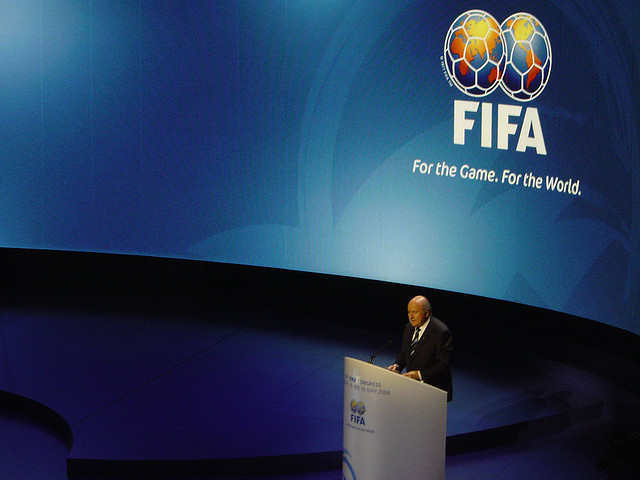The Beat, CT Scan and Checkpoint
The Beat
FIFA arrests
The world’s most popular sport received more attention than usual last week when Swiss police arrested nine current and former FIFA officers, charging them with various corruption offences over a 24-year period. Since then, Sepp Blatter has stepped down as FIFA president. But this arguably isn’t enough; there have been calls for more reform to fully rid FIFA of corruption. One suggestion for cleaning up the game is to separate the business arm of the World Cup from the charitable activities of FIFA, to allow for more accountability.
Real estate money laundering
AUSTRAC’s latest strategic analysis briefs examines how real estate is a money laundering channel in Australia, and how legal professionals help criminals (knowingly or not) by acting as ‘entry points’ to the legitimate economy. This adds to our knowledge of how ‘professional facilitators’ support crime and what legitimate operators can do to guard themselves, and the community, from attempts to launder cash.
Old solutions for a new problem
Digital piracy has been a concern to us at The Beat since the Federal Court ordered internet providers to hand over the details of those who had illegally downloaded Dallas Buyers Club. But it’s by no means a recent problem. Vox examines pirating literature during the Elizabethan area, and how relaxing restrictions eventually helped to fix the problem.
CT Scan
Citizenship revocation
There’s been a lot of talk about citizenship revocation powers this week. Daniel Flitton at The Age cuts through the noise, laying out the proposed laws and considering their ramifications. Key critiques include concerns that removing citizenship from sole Australian citizens would leave people stateless, and that the power should be exercised by the courts, not a minister. Andrew Zammit thinks that revoking passports is a ‘pointless and absurd’ strategy; Rodger Shanahan thinks otherwise.
Why isn’t deradicalisation working?
Hussain Nadim argues that our deradicalisation efforts need to recognise that the ‘radicalisation of Muslims starts in the home’. He writes that conflict between Islamic values and Australian culture leaves some isolated Muslim-Australian youths vulnerable to the Caliphate narrative.
As for online radicalisation, Sameena Yasmeen of the University of Western Australia thinks that focusing on the Internet alone is ‘reductionist’ and its interplay with other factors should be further considered, including personal interactions and the development of feelings like loneliness and a desire for purpose.
Till Martyrdom Do Us Part
‘Warped feminism’ and sisterhood are luring Western women to Islamic State, according to the Institute for Strategic Dialogue’s new report. In analysing the online activity of over 100 females who have left for the Caliphate, the report pins down their motivations, revealing that it’s much more than wanting to be a jihadi bride. Islamic State’s propaganda has exploited discontent with the sexualisation of Western women and feelings of social isolation, painting Islamic State as a ‘safe haven’ where women will be valued. See the highlights here and an interview with a co-author here.
Checkpoint
Before the boat: understanding the migrant journey
The Migration Police Institute’s recently released report Before the Boat: Understanding the Migrant Journey, could well provide pivotal advice for those trying to address the Rohingya crisis. The authors argue that the policy debates on border security strategy are not based on a sufficient understanding of the decision-making, risk assessments, and information gathering processes of migrants.
What to do when screening isn’t screening
On Monday the US Department of Homeland Security revealed that during recent red team testing of the US Transport Security Administration’s (TSA) screening operations, staff failed to identify 95% of explosives and weapons. Homeland Security Secretary Jeh C. Johnson has responded by focussing on diagnosing and fixing the screening process. With the continued growth in the number of passengers flowing through the world’s airports, perhaps the focus shouldn’t be on doing more and better checks. Instead TSA could consider Sheldon H. Jacobsen’s perspective that the key strategy should be risk-based screening.
Is Australia’s ice epidemic part of a regional pandemic?
While Australia’s National Ice Taskforce continues to collect information on the nation’s ice epidemic, the United Nations Office on Drugs and Crime has released a report on synthetic drugs in East and Southeast Asia and Oceania. The report—The Challenge of Synthetic Drugs in East and South-East Asia and Oceania—indicates that the ice epidemic might be more akin to a regional pandemic.
